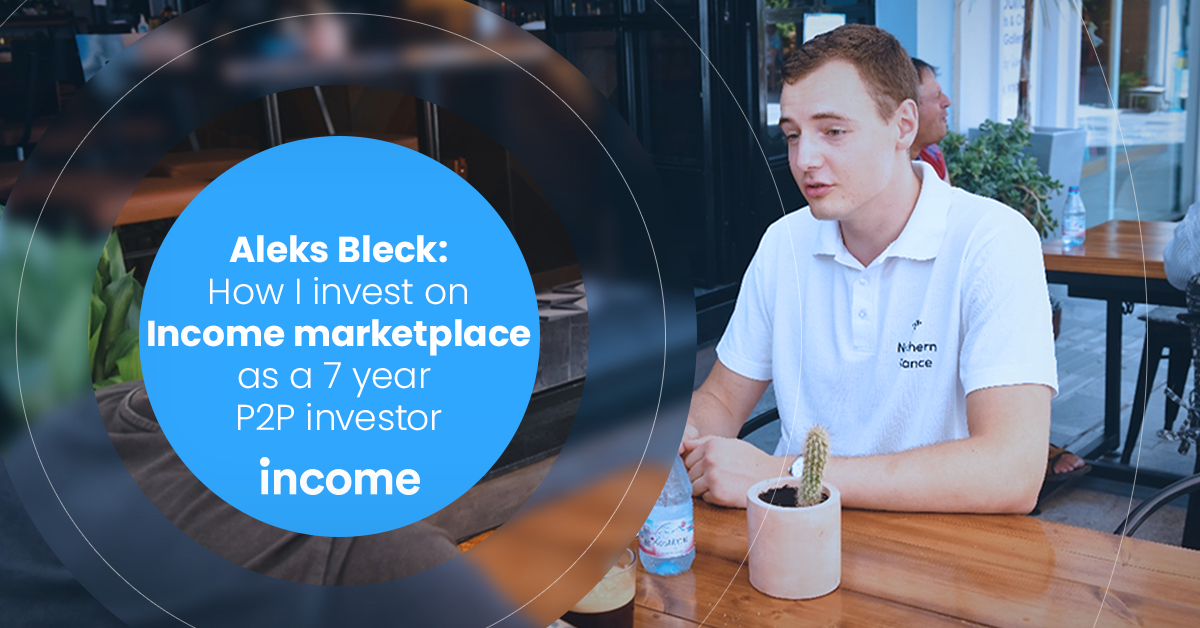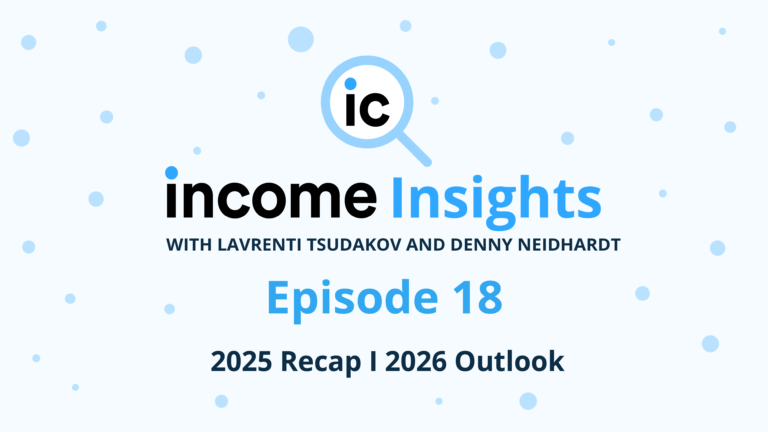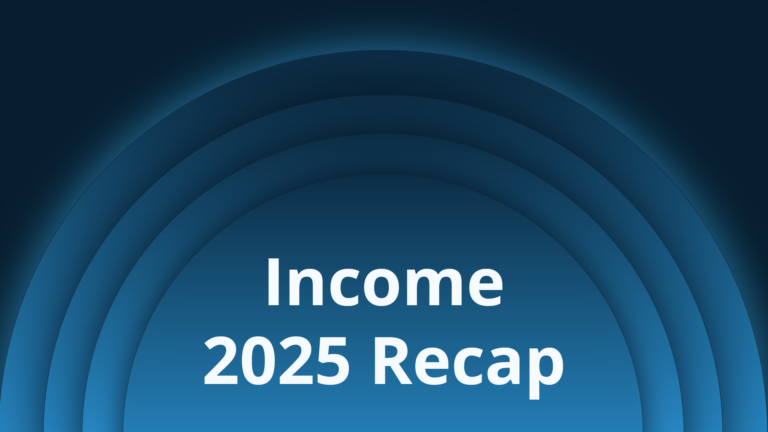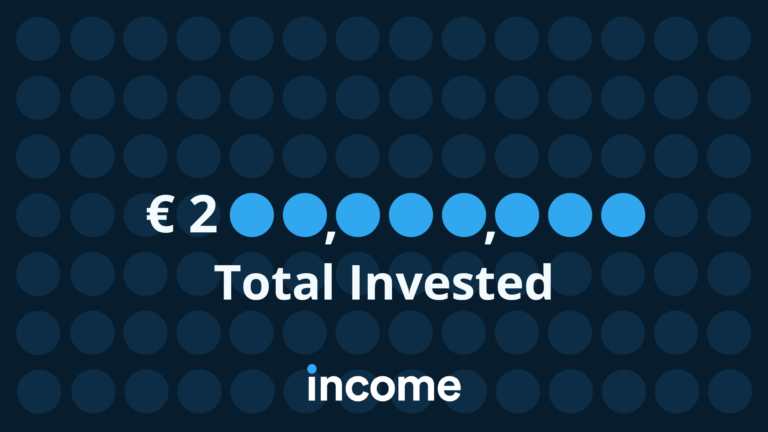Hey, my name is Aleks Bleck, and I run Northern Finance, the largest P2P lending blog in Germany, Austria, and Switzerland. In the past years, I have analyzed, compared, and invested in dozens of P2P platforms. The continuous profits from my P2P portfolio are a testament that private lending is a great and lucrative form of investment.
My work as P2P-Investor and financial analyst has allowed me some exciting views behind the scenes of the industry but also made me wary of the typical issues of private loan financing.
Despite some poor experiences with troublesome players in the private lending field, I can still appreciate a good concept when I see one. Income Marketplace seems to be such a concept. Especially their approach to loan security sounds like a sensible choice that tackles common problems of competitors.
Let’s start from the beginning.
Income is a relatively new P2P platform. Just like most of their competitors, the company is based in Estonia. The small Baltic country has quickly become the center of the European market for private lending.
That is hardly surprising, as it does not only provide the legal background for private lending platforms to flourish. Estonia is full of highly educated people and an incredible amount of knowledge and experience regarding P2P lending – knowledge that Income Marketplace was sure to hire, as a glance at their staff portfolio proves.
Leadership is provided by CEO Kimmo Rytkönen, who has built multiple lenders from the ground up. This kind of hands-on experience and intimate knowledge of the P2P market will undoubtedly serve him well, steering this newly launched boat. I have also done a podcast with him, which you can find in our review of Income Marketplace.
Currently, Income offers interest rates of up to 12 percent for its investors. If you’re not familiar with the P2P world, this number might seem suspiciously high: twelve percent is around twelve times more than what you could hope for if you’d bring your money to a traditional bank.
For example, it’s also significantly more than what the average investor achieves when investing in stocks long-term. However, these numbers are not unusual in the private lending field, especially when the loans in question are short-term consumer credits.
These small loans often last only a month or even less, thus offering very quick pay-outs of your earned interest. Fast pay-outs lead to a strong compound interest effect, as your already earned interest can be reinvested and create further interest and so on…
I’m a big fan of this type of loan and an even bigger fan of a gold old-fashioned compound interest effect. It is, after all, the most reliable way to create real, long-lasting wealth for yourself. Naturally, this kind of “easy money” doesn’t come with certain risks. But Income has an intriguing idea for those…
Nothing changes if nothing changes.
The times when a p2p platform could find investors by offering a 12 % interest rate without providing good security features are long gone – the competition is simply too strong. Similarly, a standard buy-back guarantee is not enough to make investors feel safe anymore: Too young are the memories of bankrupt lenders on the big platforms and the loss of millions of Euros.
And if it’s not the danger of lender-bankruptcy, it might be a story like the one of Turkish lender “Wowwo” that investors lost sleep over. Due to the harsh fall of the Turkish Lira in recent weeks, Wowwo simply refused (and is still refusing at the time of writing) to pay back the money it had taken from investors.
Money that is readily available mind you. It’s just not a good deal for Wowwo to pay it back right now. This specific situation perfectly demonstrates a common problem in the p2p world: If push comes to shove, you don’t have much leverage over your rebel loan originator!
Therefore, Income’s new approach to loan security comes at a very reasonable time. The p2p market is ripe for a different form of loan security. Without risking the high-interest rate and general attractiveness of private loans, the idea of “junior share” and “cashflow buffer” seem like the solution to a lot of ongoing difficulties.
I also need to mention that Income has a high interest in providing additional security for their investors: The short term consumer credits that the company mainly offers are famous for their above-average risk (which also explains the high-interest rates of up to 12 %)
The security trifecta?
The fact that Income offers a buy-back guarantee on their platform seems almost like a boring side note at this point. This kind of security has already proven itself an invaluable part of modern P2P lending.
A buy-back guarantee protects you if a borrower cannot repay his loan in time. Instead of being left with your investment or an annoying waiting time, the lender will take care of the outstanding amount and the interest. That way, you’ll get your money back regardless.
Such a guarantee is quite common on P2P platforms and has served many investors well. The problem is that it relies on the lender being willing to fulfill his obligation and pay you back. As long as the company giving out the loans is financially able and motivated to repay you, your investment is safe. If not, your platform must start legal proceedings against the loan originator, which might take time.
Removing these two big “ifs,” the motivation and the financial ability, is an excellent idea but notoriously hard to achieve. By gaining the legal rights to take matters into their own hands (if need be), Income has found a way to make sure that investors get their money back – even if it comes to an actual crisis.
The combination of the buy-back guarantee, the junior share, and the cashflow buffer seem like a trifecta of P2P loan security. Of course, this concept has to prove its worth in an actual, real-world case. I, for one, consider it an interesting approach regardless.
As good a time as any…
Starting a new P2P platform is not an easy task. Investors have proven to be particularly fond of long and successful history when choosing a provider – unsurprisingly since other securities are famously hard to come by. This fact can make it hard for a new player to succeed.
But Income is circumventing this necessity for a long history by providing another, even better form of security: actual leverage over the lender, which would allow the investor to get his money back even in times of genuine, severe crisis!
To me, this seems like a revolutionary approach that might even change the whole P2P industry altogether. Of course, Income needs to prove its value over the coming months, regardless of promises and ideas.
Or in other words: I might not immediately invest the majority of my portfolio at Income. Still, I’m more excited about this project than anything else in the P2P market in recent months. And I might shift money to this new opportunity, step by step, in the future.




